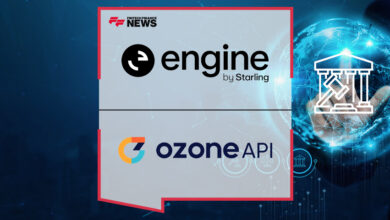EXCLUSIVE: “Format for Success” – Antoine Cuypers, Intix and Leo Wagner, FIS in ‘The Fintech Magazine’

Belgium has grown a fintech industry that impacts the world with smart data handling. The latest partnership between homegrown technology specialist Intix and global giant FIS is evidence of it. Antoine Cuypers and Leo Wagner discuss the benefits
Intix is headquartered in Mechelen, Flanders – a modest northern Belgium city with 88,000 inhabitants that’s known principally for its robust vegetable cultivation. The company has a highly-skilled workforce that’s counted in the 10s not hundreds. And yet, like several fintechs to have successfully emerged from this comparatively small nation, Intix is having a disproportionately big impact on financial institutions across the world.
As a niche technology provider, helping banks screen and analyse transactions, its clients include some of the best-known names in commercial banking, such as Société Générale and Nordea. An in 2023 it signed a joint deal with one of the giants of fintech, FIS. Intix has been described as a kind of Google for banks.
It uses indexing technology to trace and categorise transactional data into transparent, actionable intel. Its skill is, therefore, predominately organisational – but in a modern world where banks are waking up every morning to an ever-expanding spaghetti junction of data, that’s a powerful asset, especially for companies like FIS, which supports 95 per cent of the world’s banks.
Leo Wagner, FIS senior solutions consultant, says that in today’s dynamic and fast-moving financial technology landscape, the effective management of payments data is emerging as a critical challenge for organisations.
“Indexing alone only solves one part of the challenge… the second part is finding a way to put the data into a single unified format”
“Banks need cost-effective ways of dealing with mountains of data and we want to offer our financial institution clients the most advanced technologies and the best experiences,” says Wagner. “With Intix, we have found the ideal partner to provide our customers with a world-class payments warehouse analytics and reporting solution.”
Antoine Cuypers, Intix’s director of strategic alliances and key accounts, who was one of the first to join Intix founders Marc Braet and Wouter Van Santvliet‘s startup team in 2013, has seen how payment flows have become more complex for major financial institutions over the past decade.
“But as one of our customers – whether you’re an institution or a corporation – a payment is a payment and a settlement is a settlement, regardless of the underlying technology. They don’t have to worry whether their payment is expressed in this language or that,” he says.
This is precisely what creates the complexity for institutions and those who try to turn the information that payments data contains into actionable insights.
“Data is spread all over the institution and it resides in different formats,” adds Cuypers.
So the Intix vision was always to provide ‘a single-window’ to unlock the power it contains. And the company’s success today is due to it offering that solution at just the right time.
“Twenty years ago, banking was made up of specialist, niche systems that took care of individualistic functions within an institution, each with their own data silo,” says Cuypers. “Now banks are trying to consolidate that information in a centralised manner – think about the data lakes, data warehouses, and data stores projects underway. Intix is a natural solution fit for that because of our data centralisation capabilities, which allows for the accessing and valorising of all that data.”
The indexing technology it deploys uses the same tools that help big data firms like eBay and Amazon succeed in managing billions upon billions of records and yet give users a response time of a few seconds.
“But indexing alone only solves one part of the challenge,” says Cuypers. “The second part of the challenge is finding a way to put the data into a single unified index format so that it simply says ‘a payment is a payment’ when in reality this was expressed in 10 or 20 different technical formats.
“At Intix, we have constructed proprietary approaches around indexing so that – in layman’s terms – we can come into the bank and, like Google Search indexes the internet and puts it at your fingertips, we index all the bank’s transactions, institution-wide, and put it at their fingertips.”
That allows financial institutions to see a problem in their pipeline before their customers do, and act on it. Cuypers explains: “Institutions often find out about a challenge because their customer calls to tell them about it, and that’s not the type of alarm bell you want in business. What our unified index enables is early detection in their business flow in near real-time, followed by an alert, and intelligence on the value at risk. Are we talking about a problem which is worth €100 to an individual customer, or a problem worth €100million to a chain of high custody customers?
“The value factor is really pertinent because the value at risk will affect one’s response level: if it’s €100, you’re going to ask Jake around the corner to stay late. But if it’s €100million, you’re going to have a whole department mobilised. This type of insight and decision power is what we believe will allow customers to move from reactive to proactive.”
According to Leo Wagner at FIS, the global shift towards ISO 20022 and instant payments is impacting not only bank payment systems but also the downstream data warehouses, archiving and reporting systems that Intix is involved with. So, the partnership between the two companies will see Intix making real-time financial transparency a reality for FIS clients via two dedicated solutions, the FIS Transaction Warehouse and Reporting (TWR) and the FIS Central Payments Store (CPS).
“The time is definitely right for banks to pivot away from considering data management as a cost centre”
“The time is definitely right for banks to pivot away from considering data management as a cost centre, towards extracting value from the data in the form of new revenue streams and actionable insights into the bank’s business,” says Wagner. “Tapping into this mine of information to harness its full value has the potential to be a game-changer.”
BELGIUM: AN INSPIRED FINTECH HUB YOU CAN BANK ON
Belgium might be little in terms of geography, but its location at the economic nerve centre of Europe has made it big in the world of fintech.
It’s one of the most significant pioneers with currently more than 100 fintech companies headquartered there, ranging from innovative startups to fast-maturing heavyweights, inspired by the stories of the nation’s home-grown superstars.
One of Belgian fintech’s earliest champions was Jurgen Ingels with his Clear2Pay, the payment processing firm, which, in the space of 13 years, became one of the world’s most sophisticated payment companies. It was acquired by FIS for $357million in 2014, but continues to hold business operations in Belgium.
Another is Unifiedpost Group SA, the Cloud-based financial software firm founded by Hans Leybaert in 2001, which has blossomed into a listed and leading company now intent on expanding its European reach through acquisitions (eight companies in the past four years including 21grams and BanqUP).
A third is SWIFT. Arguably the most famous of Belgium’s homegrown financial services, its secure messaging and interface software services 11,000 financial instructions across 212 countries in its network and handles 44.8 million FIN messages per day. This year, it celebrated its 50th anniversary, and in September announced a new partnership with Wise.
Antoine Cuypers from Intix was formerly with SIDE International, a little-known Belgian firm that made a big name for itself in the aftermath of the regulation changes prompted by the 9/11 attacks.
“Along with the French company FircoSoft, we were the two key players offering adapted sanctions screening technology. SIDE’s product was soon servicing more than 500 of the biggest banks in the world in approximately 103 countries, and all out of little Belgium,” Cuypers says.
He believes the secret to Belgian companies’ explosive fintech success lies partly in location and partly in the ecosystem it has managed to create.
“It goes without saying that the geographical location, which places us at the centre of Europe and so close to everything, is a good start. It means that if we want to go talk to some of the biggest banks in France, we take the train and are in Paris in under two hours. This translates into a huge potential to grow one’s business organically
There are also advantages to having the offices of the European Central Bank and European Union in one’s backyard.
“Add to that the level of knowledge and expertise found in the Belgian workforce because of our fintech history and the far-reaching Swift diaspora,” adds Cuypers. “You have to pay a price for that, but it makes hiring people with finely-tuned know-how and knowledge – whether from a marketing, a sales, or a technical perspective – that much easier.
This article was published in The Fintech Magazine Issue 32, Page 12-13



